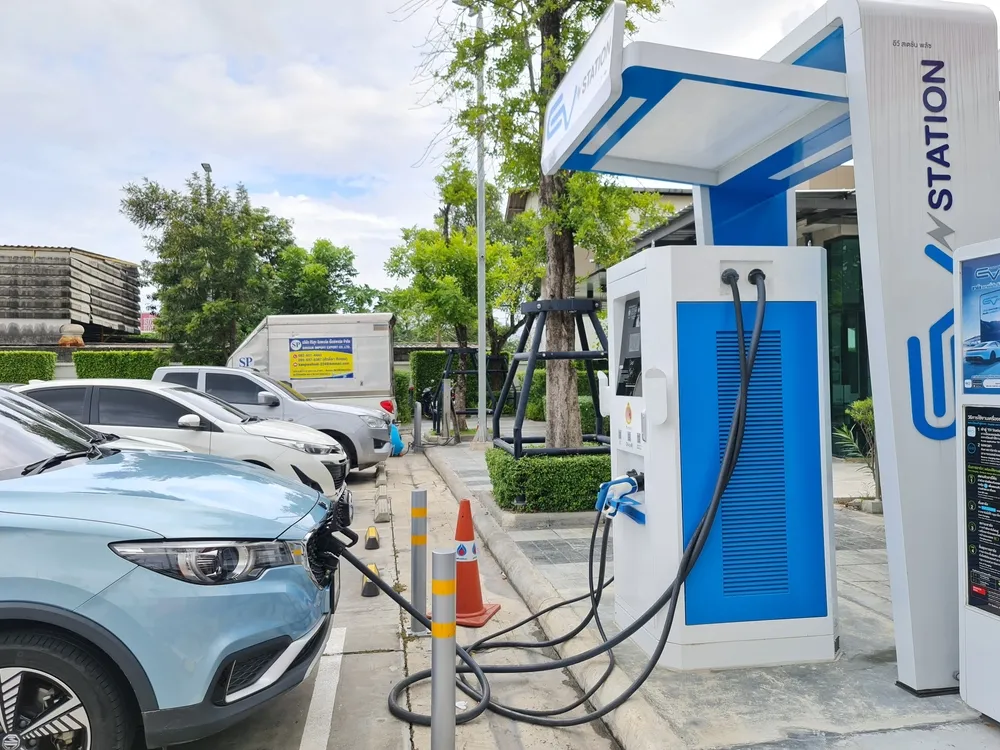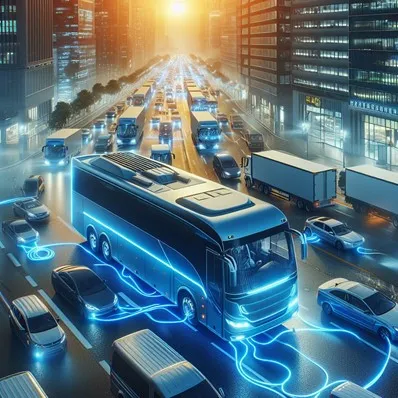The transportation sector is one of the largest consumers of petroleum products, contributing significantly to greenhouse gas emissions and energy dependence on crude oil. The electrification of transportation , which includes electric vehicles (EVs), electric trains and other non-petroleum-dependent modes of transportation, is emerging as a promising solution. This transition is not only environmentally beneficial, but it is also economically viable and technologically feasible.
Electrification of land transportation
Electric vehicles (EVs), technology and development
Electric vehicles (EVs), led by innovative brands such as Tesla, Nissan and Chevrolet, are at the forefront of transportation electrification , marking a significant milestone in the automotive industry. These vehicles are advancing rapidly in terms of autonomy and efficiency, while achieving a notable reduction in costs, increasing their accessibility and market appeal.
In parallel, charging infrastructure, although still in a development and expansion phase, is improving at an impressive rate. This expansion is taking place especially in urban areas and along major highways, which greatly facilitates the logistics and practicality of using EVs. This development in charging infrastructure is crucial as it represents one of the most significant barriers to mass adoption of electric vehicles.
Furthermore, technological advances, particularly in the field of batteries, have been an essential driver for the growth and popularization of EVs. Improvements in battery energy density and advances in their durability and lifespan are transforming the perception and functionality of electric vehicles. These innovations not only benefit individual consumers, but are also making EVs increasingly viable and attractive to commercial fleets.
All of this is contributing to a faster and more widespread adoption of electric vehicles, which in turn drives a broader shift towards more sustainable and environmentally friendly transport. Thus, the expansion of charging infrastructure and continued advances in battery technology complement each other, creating a robust and efficient ecosystem for EVs and accelerating their integration into modern society.

Buses and commercial fleets
Cities such as Shenzhen, China, have fully electrified their city bus fleet, significantly reducing CO₂ emissions. Companies like Amazon and UPS are investing in electric vans for their deliveries, driving greater adoption of electric commercial vehicles.
Electric trains
Electric trains, although not new, remain an essential component of transportation electrification . In Europe, most trains already run on electricity, and projects such as the Eurostar and TGV are leading the way towards more efficient and green rail transport.
Electrification of maritime transport
Maritime transport is a large consumer of crude oil, and its electrification is in its initial stages. However, there are significant advances:
- Electric Boats and Ferries: Norway, a leader in this field, operates several electric ferries, such as the MF Ampere. These vessels greatly reduce emissions of CO₂ and nitrogen oxides.
- Cargo Ships: Electrification of cargo ships is more challenging due to their energy requirements and autonomy. However, projects are being developed for hybrid and fully electric ships, which could revolutionize the transport of goods by sea.
Electrification of air transport
Air transportation is one of the biggest challenges of electrification due to high energy and safety demands. Despite this, there is notable progress:
- Hybrid and Electric Aircraft: Companies like Hybrid Air Vehicles and Boeing are working on hybrid and electric aircraft. Although they are mostly for short journeys, they represent an important step towards reducing crude oil consumption in aviation.
- Electric Drones: Electric drones are transforming small cargo transportation and logistics. Its use for last mile deliveries is already being tested by companies such as Amazon and DHL.
Impact of electrification on crude oil demand
The mass adoption of electric vehicles and different types of transportation has the potential to significantly reduce oil demand. According to recent studies, it is estimated that for every million EVs on the road, oil demand could be reduced by approximately 50,000 barrels per day. This impact is scalable and will increase as EV adoption grows and EV technology improves.
Sustainability and renewable energies
The electrification of transportation not only reduces dependence on crude oil, but also encourages the use of renewable energy. As electricity generation shifts toward renewable sources like solar and wind, the environmental impact of EVs decreases even further. This creates a virtuous cycle where transport becomes increasingly cleaner as the electricity grid becomes greener.
Economic impact
The transition towards transportation electrification has important economic implications. It reduces dependence on oil imports, which can have a significant effect on a country’s trade balance. Additionally, it creates opportunities in new industries, such as battery manufacturing and charging infrastructure.
Challenges and opportunities
- Charging and power infrastructure: Developing adequate charging infrastructure is crucial. This includes not only the expansion of charging stations, but also the ability of the electrical grid to support the additional demand.
- Technological advances in batteries: Battery technology is the heart of transportation electrification . Advances in energy density, charging times and recycling are essential for broader adoption.
- Policies and regulations: Government policies play an important role in promoting transportation electrification . Tax incentives, emissions regulations and subsidies for research and development are essential.
conclusion
The electrification of transport is a key piece in the transformation towards a sustainable energy future. Although it presents considerable challenges, the opportunities it offers in terms of emissions reductions , technological innovation and economic development are immense. With the continued commitment of governments, industries and consumers, the vision of a world less dependent on crude oil is getting closer to becoming a reality.
References
Own source

